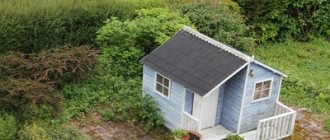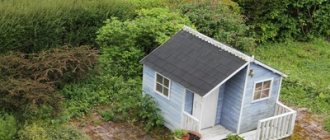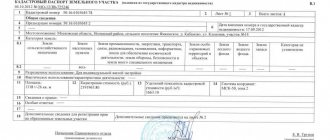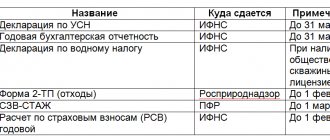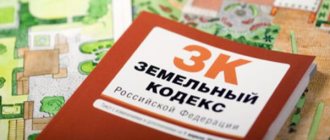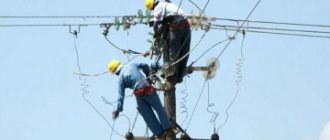Buying a dacha in SNT is a responsible matter in our time. In order to avoid becoming a victim of scammers, black realtors and unscrupulous sellers, you need to know how to formalize the purchase of a summer house in SNT and what documents the seller should have for a plot of land and a country house. Let's look at how to arrange the purchase of a summer cottage with a plot of land yourself and what you should pay special attention to when purchasing a summer cottage plot from a gardening partnership.
Buying a gardening cottage: legal aspects
SNT is created by private individuals, land owners. But the partnership also disposes of land that is in common use, this should be taken into account.
A country house with land is sold, guided by the articles of the Land Code of the Russian Federation. For this:
- make an assessment of ownership (invite a special commission);
- put in order the papers certifying the right to use and sell real estate and land.
If a buyer is found, it makes sense to learn about how to sell a garden plot quickly and how to do it without breaking the law. Contracting parties:
- they conclude a preliminary contract (this allows the seller to feel more confident, and the buyer not to worry that the plot he likes will be bought by someone else);
- sign the main policy agreement;
- make a calculation;
- register the right of the new owner;
- pay personal income tax.
It is better to have the fact of purchase and sale certified by a notary. The notary's signature on the document is optional, but will help avoid deception and fraud. It is also better to transfer money in the presence of a notary.
It is better to sign the contract at a notary
Pitfalls and possible difficulties
When purchasing, you must check whether the owner of the plot is occupying someone else's land . It often happens that the owners installed the fence incorrectly, seizing part of the territory from a neighbor or a piece of public land.
In this case, the seller must legitimize the existing situation by registering the ownership of the used surplus land. Or move the fence so as to free up illegally occupied territory.
Before the transaction, you need to check several aspects:
- cadastral work was carried out in relation to the site, it has formalized boundaries marked on the cadastral map of Rosreestr;
- the owner of the land and the seller are the same person;
- The purpose of using the site is gardening.
All the necessary information is in the extract from Rosreestr.
The plot must be registered as the property of the seller.
Some citizens sell plots that are provided to them for use as members of gardening associations. A sale is a situation where the former owner of a property ceases to be a member and a new owner takes his place in the partnership.
Purchasing an unregistered plot is associated with great risks. There is no template agreement for executing a transaction for the assignment of membership in a non-profit organization. The decision to accept a new member of the partnership is made at a general meeting, and the candidacy may be rejected.
What you should know when buying a plot of land in SNT
When purchasing a dacha and the land assigned to it, they check the documents and apply for a certificate from the administration of the village or city. The latter is necessary to confirm that the property is cleared of the people previously registered in it. If other citizens are registered in the purchased housing, then the new owner will have to go through the unpleasant procedure of deregistering unwanted residents. However, such a discharge is not always possible (it will not be possible to discharge minors from their only place of residence). When purchasing a plot of land, you should also pay attention to:
- I put on my uniform. It is not always possible to build a house or other buildings on non-standard plots of land. The reason is a violation of fire safety standards. Between the edge of the site and the building there should be from 1 to 5 meters.
- Terrain. A plot located on a gentle slope may flood in the spring.
- Communications. Before purchasing, you should make sure that there is a water supply or well on the site, that the house is provided with energy, and that there is a possibility of connecting to gas.
The more complex the communications system, the more expensive the house will be
. Having learned the exact address of the site, they turn to local authorities. This will help to study its history. A person interested in a plot of land should find out whether it has been seized, whether the land is under collateral, or whether it is encumbered. When contacting electricity and water supply services, they will find out about the presence or absence of debts. In addition, you should check:
- whether mandatory payments have been made to SNT;
- can the state buy a plot for municipal needs (information is obtained from the regional court and territorial administration, but exclusively to the land owner);
- whether the plot is registered in the Land Cadastre.
You should ask your dacha neighbors about the area you like.
Before final payment
Before paying the seller, they review the documents again and negotiate the final terms of the transaction agreement. With the help of this document, the rights of the new owner are established. It must be read carefully, studied together with a lawyer and signed only after all controversial issues have been resolved. There is no point in hoping that the seller will pay the utility companies, as agreed with the buyer before transferring the money to him.
What should you pay attention to when completing a purchase and sale transaction for a garden plot?
When registering the purchase and sale of a plot, you should pay attention to the following points:
- The seller must have all the necessary documents confirming his rights to the plot and buildings on it. The procedure for re-registering a garden book in the name of the buyer does not replace the purchase and sale transaction and does not lead to the emergence of ownership rights.
- The land should not have encumbrances in the form of arrest and mortgage. It is worth clarifying whether there are currently any lawsuits going on regarding the plot of land. Typically such cases are heard in district court.
- Often the boundaries of the site do not correspond to the information specified in the cadastral passport. To avoid boundary disputes in the future and to avoid having to overpay “for air”, you should contact cadastral engineers.
- Before signing the contract, it is worth checking all the data from the documentation for the land with those specified in the text. This is the cadastral number, the area of the plot, its purpose, location, detailed information about the buildings, passport and contact information of the parties, the price of the contract, the conditions for the transfer of land, etc. The contract must contain information about the absence of encumbrances on the land. The agreement may provide for an advance payment and various forms of payment.
- Some citizens mistakenly believe that by signing a contract and having it certified by a notary, they automatically acquire ownership rights. In fact, since 1998, there has been a rule on mandatory registration of transactions when re-registering property rights in Rosreestr. Whereas notarization of the agreement is carried out at the request of the parties.
- It is worth making sure that the previous owner has no debts: for membership fees (this point can be found out from the SNT board), for utility bills (by taking the appropriate certificate from the owner), for land tax (from the Federal Tax Service).
To properly conduct a transaction for the purchase and sale of a garden plot, it is worth using the services of a lawyer or realtor who will help you draw up an agreement, check the plot for legal purity, or will accompany the transaction.
How to rent land for building a private house? You will learn how to allocate a share in special cases in our feature article.
How to take the extract you need from the house register, you will read in our material at the link.
What documents should you have for your dacha?
Let's talk about what documents are needed when selling a summer house with a plot of land in SNT. The main document is issued by the Federal State Registration Service for Cadastre and Cartography (registration certificate). The document contains:
- information about issuance (by whom, when, where);
- information about when and on what grounds the current owner of the plot became its owner;
- Full name, passport number, registration of the owner;
- information about the category of the owner of the property right (the seller can own the plot solely or on the basis of equity participation);
- information about the status of the site (category, type of use, area, postal address);
- registration number indicated in the Cadastre;
- information about restrictions on the right of use and ownership, if any.
The document is signed by the registrar personally, with his full name, signature and seal affixed. The document is assigned a serial number. On the reverse side of the certificate, additional owners, if any, are listed.
Certificate of state registration of the site
What documents should the seller and buyer prepare?
If the seller has prepared all the documents correctly, then a preliminary agreement is concluded between him and the buyer. The buyer transfers 10% of the cost of the plot to the seller. The preliminary agreement is the main document confirming the existence of an agreement between the parties.
After reconciling all the papers, the main DCP is signed. To sign it you need:
- registration certificate for land and land (two different documents);
- identification documents of the parties;
The contract states that full payment has been made between the seller and the buyer, i.e. payment has been made and the seller has no complaints regarding this issue. If there is no such mark in the document, the Registration Chamber will not accept it for registration and the contract will have to be redone. The buyer who has confirmed the purchase and sale must submit for registration:
- purchase and sale agreement;
- registration certificate;
- cadastral passport (it can be ordered within 2-3 weeks at the Registration Chamber);
- passport, including a photocopy of the seller’s passport;
- deed of transfer of property.
The passport remains the main document, as it confirms identity.
For the transfer of papers, you will have to pay a state fee by attaching the corresponding receipt to the general package of documents. After completing all legal procedures, the new owner can apply to SNT with a request to accept him into the Partnership.
Site selection
A dacha plot for purchase is selected according to a number of basic criteria:
- Price, including costs of maintaining the site;
- The seller has all the documents ensuring the legality of the future transaction;
- Ease of use, this includes such parameters as the size of the site, the presence of communications, the type of soil, the terrain, the state of the environment, the distance from the city, the favorableness of the area (including the crime situation), etc.
It is important to take into account the ratio of the area allocated for the house (or already occupied by it) and the total area of the site.
It varies from 1/4 to 1/10 depending on whether the construction of additional buildings is planned.
Particular attention should be paid to assessing the crime situation, since theft of property from country houses is widespread in Russian realities.
One of the main legal characteristics of a site is its ownership or right of use. In the second case, it is not the full possession of a citizen, which complicates the procedure for its acquisition.
Self-assessment of all factors can take a lot of effort and time. To save money, you can use the services of real estate agencies, but you have to pay a relatively large amount for their work, and there is a possibility of hiring unscrupulous realtors who take advantage of the buyer’s ignorance of certain issues and offer him low-quality goods.
To prevent such excesses, you should monitor the work of realtors and be familiar with the general principles of site selection.
How can you sell a plot using a garden book?
Some owners, when meeting with a potential buyer, offer to give him a garden book instead of a certificate of ownership of the house and land. It is impossible to conclude a purchase and sale agreement on the basis of a garden book, since this document has no legal force. If the owner offers a garden book instead of a registration paper, it means that he is not the owner of the land and the house. Perhaps the seller is a fraudster or does not know about all the intricacies of the sale.
Based on the garden book, the right to use the land is transferred to the new owner. But the previous owner owns the land. And in this capacity the person who gave the garden book to the buyer is far from acting. Most likely, the plot belongs to the municipality. Neither the chairman of SNT nor the members of the board have the right to sell. To do this, state registration is required.
A garden book only implies the right to use the land, but not full ownership
To transfer the right to use the plot in this case, there is no need to conclude a purchase and sale agreement, since it will not be considered valid anyway. To ensure that the new user does not have any claims from the Partnership, it is enough to write two statements addressed to SNT. The first is written by the previous owner of the plot, notifying in it of his desire to leave SNT. The second is the new owner who wants to join the Partnership.
Purchasing an allotment using a garden book allows you to:
- save significantly (non-privatized plots are several times cheaper);
- do it yourself without resorting to the help of a notary (the transaction does not need to be certified);
- obtain rights to the site as soon as possible.
If the members of the Partnership are not against transferring the plot to a new user, then a new garden book is drawn up in his name, after which he can use the land for its intended purpose. The obvious disadvantages of purchasing a non-privatized plot include:
- the risk of being deceived (no one controls the money transfer transaction);
- lack of documents for the plot (during subsequent privatization, if it becomes available, it will not be easy to restore the papers lost decades ago).
The lack of documents for the plot creates many problems for the new “owner”
Legislation
Garden plots are usually located on the territory of SNT or a garden partnership. Other forms of citizens' associations (cooperatives and non-profit partnerships) are less common. Partnerships represent associations of citizens on a voluntary basis for the purpose of managing joint property.
The main goal of the association is to solve agricultural problems and grow agricultural products.
At the same time, SNT have the status of a non-profit organization. This means that products grown in garden plots are used for family purposes and are not sent for sale.
The activities of SNT are regulated by Federal Law-66 and directly by the charter of the company. Earth on
SNT territory may belong to both the partnership and its participants. SNTs can also acquire property in joint ownership using money received in the form of membership fees.
The legislation allows not only to grow vegetables and fruits on SNT land, but also to build garden houses on it. In this case, capital construction is not allowed .
The Civil Code indicates the possibility for a member of an SNT to leave the partnership at any time (Article 252 of the Civil Code of the Russian Federation). To do this, an application is submitted to the chairman in free form. In this case, a member of the SNT may demand the allocation of his share from the common property.
Ownership rights to a plot can be acquired on several grounds. For example, by inheritance and when concluding a purchase and sale agreement. Also, those citizens who have been using the plot for more than 15 years and it was transferred to them for indefinite use have the right to register it as their property under a simplified scheme (according to the so-called dacha amnesty).
A transaction for the purchase and sale of land in a garden cooperative is subject to the general requirements for civil contracts set out in the Civil Code of the Russian Federation.
It may involve the purchase of both land separately and a plot with a garden house.
It is worth considering that, according to the norms of the Land Code, garden plots may belong to:
- on property rights (Article 15);
- on the right of perpetual use (Article 20);
- on the rights of lifelong inheritable ownership (Article 21);
- on a leasehold basis (Article 22).
The seller has the right to sell only with proper registration of ownership rights.
Sale of land with a house
When buying and selling a house in SNT, you need to know what documents are needed to sell a summer cottage along with the building. Thus, the owner is obliged to provide the buyer, in addition to a certificate of land ownership, also:
- building acceptance certificate;
- extract from the Cadastre;
- technical documentation;
- house book.
The preliminary contract indicates that the land is transferred to the new owner along with the building. This will help avoid situations where after some time a person appears with documents to own the house.
Membership in SNT
After the money has been transferred to the seller and the new owner has actually taken ownership of the plot, he needs to establish relations with the Partnership. The buyer submits an application to SNT, expressing his desire to become its member, as mentioned above.
Membership in SNT means that the new owner undertakes to pay membership fees and bear expenses associated with maintaining the common property of the Partnership. After being accepted into the SNT, the owner or user of the plot is issued a membership book.
The main differences between SNT, DNP and individual housing construction
When a land plot is purchased, a certain category is established and the types of permissible use are described. These characteristics largely determine what can be done with the site in the future. When purchasing land in SNT, DNP or for individual housing construction, you need to understand what their features are.
individual housing construction
Land intended for individual housing construction is located on the territory of the settlement
This abbreviation means a plot intended for those who intend to build their own home on it. Such land is located on the territory of the settlement. Advantages of a site for individual housing construction:
- Having built a private house, it will not be difficult to register yourself and your loved ones in it.
- Living there, having registered, a person has the opportunity to receive mail at this address, subscribe to newspapers and magazines.
- The state has established social norms for such lands, the implementation of which provides citizens with infrastructure. This allows you to raise living standards and reduce costs when living there.
- If there is permission to own and store weapons, then the law here allows this to be done.
- The state is taking various measures to support citizens. In particular, it is possible to receive a tax deduction when constructing housing. Having built a house on individual housing construction land, a citizen has the right to take advantage of it.
- Banks can accept such a plot as collateral when obtaining a mortgage loan.
When purchasing a plot for individual housing construction, you need to take into account that in this case there are certain disadvantages:
- The size of the land purchased must comply with legal restrictions. Usually local authorities set maximum and minimum sizes for purchase.
- When constructing housing, it will be necessary to formalize the project with the relevant services and ensure compliance with all legal requirements during construction. After the housing is built, it will be necessary to formalize the commissioning.
- The quality of infrastructure created for residents may vary. Although according to the law it should be, this does not mean, for example, that electricity will flow without interruptions and the roads will be good.
This type of plot usually costs more compared to the other two.
DNP
A dacha non-profit partnership can be located both outside the city and within the municipality
This name stands for dacha non-profit partnership. It can be located either within a populated area or outside the city. This land is intended for gardening. At the same time, it is allowed to build a country house there.
The advantages of this type of plot:
- the price is approximately 20% lower compared to individual housing construction;
- Having purchased this land, a citizen becomes a full participant in the partnership, he can now take part in the life of the community;
- in cases where the site is located in a settlement, although with great difficulty, it is possible to register in the house, it is easier to do here than in SNT;
- the constructed country house does not have to be tested for compliance with the requirements for residential buildings.
It is important to note the disadvantages:
- the main purpose of such plots is gardening, but not the construction of a residential building, although this can be done, but registering it properly will be problematic;
- The availability of communications necessary for life is not guaranteed, but they can be made by specialized companies at a commercial price;
- in some cases, communications are equipped when creating a partnership, but their cost will be included in the price of the site and will greatly increase it;
- Currently, the Constitutional Court of the Russian Federation has recognized that it is possible to register with the DNP, but in practice this procedure is very complicated;
- the law does not guarantee the availability of doctors, kindergartens or schools in such places, so if necessary, you will need to visit them in another locality;
- It is not always possible to provide such land as collateral when obtaining a loan.
When the country house is built, it will be necessary to register its ownership and enter data about it into the Unified Register.
SNT
A gardening non-profit partnership is intended to conduct agricultural activities and can only be located outside the settlements. Since such land is usually fertile, it is more expensive compared to DNP, but less when compared with individual housing construction.
Its positive aspects are as follows:
- Located outside the city, in the countryside.
- There is no obligation to build a house.
The gardening non-profit partnership is located outside the city
The disadvantages include:
- There are usually no communications in SNT. You can build them yourself, but this can be done at a high cost and not in all cases.
- There is practically no opportunity to register. This can be done by putting in incredible effort on rare occasions.
- Banking institutions prefer not to take SNT plots as collateral.
Regardless of the actual quality of the constructed housing, it will be listed as a country house. When selling, it will not be possible to ask for an adequate price for it.
What's the result?
So, it is possible to buy land and a house in SNT, but before the transaction you need to find out what documents are needed to buy a summer house with a plot of land in SNT, how to sell a summer house plot quickly, how to behave with the seller, where to go after making a purchase. See all this above.
| A little more attention! Write in the comments what you think - is the lower price of land in SNT worth it, or is it better to immediately “aim” to buy in a cottage village? |
Ratings 0
Read later
